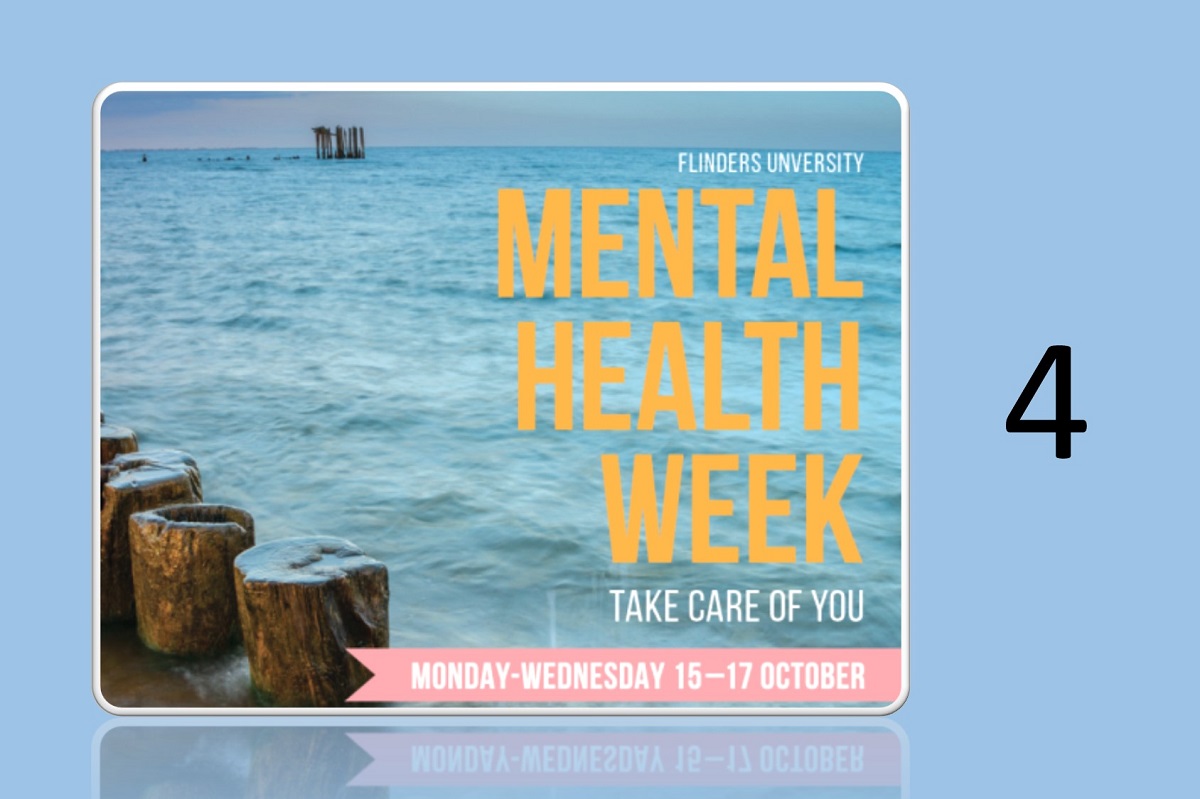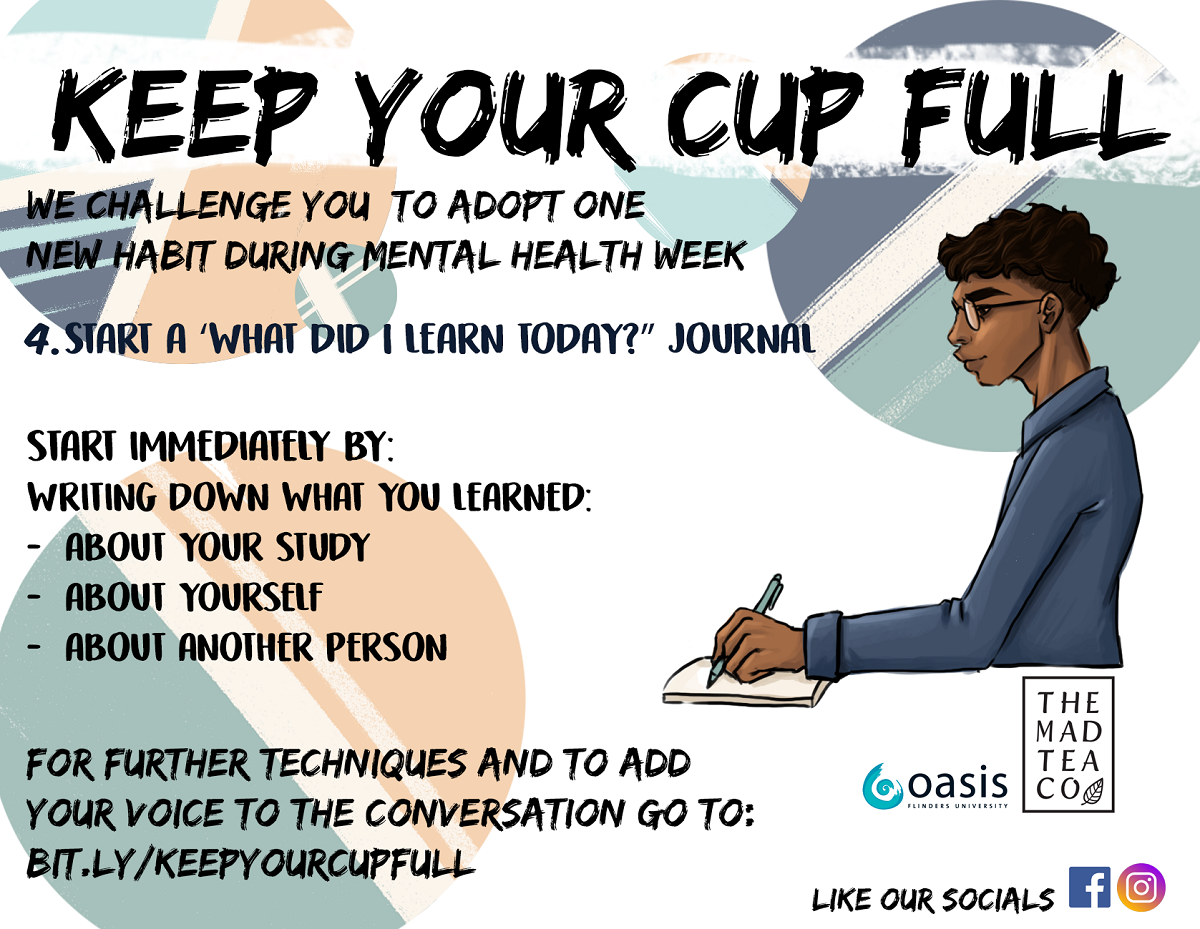
Day 4 people! I promise this one is much easier to do inside.
If that doesn’t make sense to you, consider visiting Day 1, Day 2 and Day 3. Or go back to the beginning to find out about the Mental Health Week Challenge.
Like a lot of young people, I kept a journal for a while. I reckon it was in the early years of high school.
I didn’t hold onto them, cause they were full of the crazy ramblings of an emerging teenager. And to be honest, I didn’t really think I would ever get to a stage where I would actually recommend that people keep a journal. But never say never.
With my psychologist hat on (yes, all psychologists get a special hat), I now view journalling as a potential tool for learning, self-reflection and emotional development.
I also tend to be a bit more specific in my recommendations about journal keeping
As a starting point, I recommend focusing on three core questions.
What did I learn today from my topic/course? – This is about improving your memory for recently learned content and for reflecting on what has had the most impact on you.
What did I learn today about myself? – This is about developing self-awareness and understanding of your personality, strengths, weaknesses and triggers.
What did I learn today about another person (e.g. family member, friend, colleague, partner)? – This is about focusing your attention on others and learning to be more empathic and understanding.
I think the best time to do this is in the evening, in the hours before bed. It doesn’t have to take anymore than 10-15 minutes. Suggestion aside, write as much as you want, when you want.
As with any new habit, I suggest trying it for at least a couple of weeks before reflecting on whether it has been helpful or not. The reason being that therapeutic writing can lead to short-term increases in distress (because you are confronting difficult issues), but then benefits start to emerge as you process those issues.
There is no requirement for you to keep journalling long-term if you decide it is not for you. It is about asking yourself whether it has been helpful.
You can also go online and find other journalling prompts that might suit you better. For example, some people like to journal about what they are grateful for. Others like to note all the interesting concepts and ideas that they encountered during the day. Others like to use journalling to plan for the future and create a vision for their life. Others like to use writing to process bad things that have happened to them.
Whatever flavour of journalling takes your fancy, challenge yourself to give it a go.
Now obviously you don’t need to share what is in your journal, but if you find the process beneficial in anyway, we (OASIS, Mad Tea Co, myself) would love to hear about it. Your experiences might help other students decide whether to give it a go.


